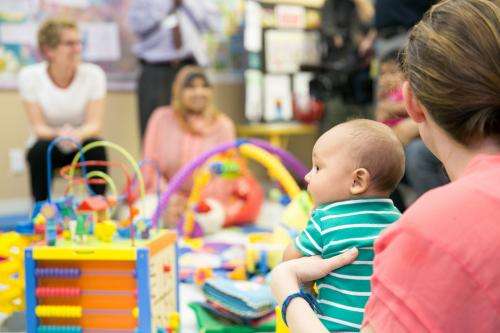Consumer participation a new approach to health research

The recent renaming of the Telethon Kids Institute has brought more change than just the name—it's bringing a new approach to health research.
While children remain at the heart, the institute has refocused on ensuring community involvement is central to its research and development programs.
"How we do this, is how we want to be judged," said Telethon Kids Institute director Jonathan Carapetis, while detailing the new research strategy blueprint at the renaming launch.
The new approach will involve consumer participation in research through the establishment of advisory councils, steering committees, reference groups or consultancy forums by members of the community.
Anne McKenzie, consumer advocate at the Telethon Kids Institute and UWA School of Population Health, and member of the NHMRC Community and Consumer Advisory Group says holding the institute accountable to the community to address its needs takes translation of health research to a new level.
"It is about making sure [health research] makes a difference to policy and practice and I believe that is what the community would want to see happen," she says.
Consumer participation is not an entirely new concept at the institute. Former director Fiona Stanley introduced community engagement in population science a decade ago and Ms McKenzie has been directly involved ever since.
"It has been a slow process. In some cases minimal, in other cases fantastic success, where researchers could see the benefit of what the community can add to the scientific process."
An example of a longstanding dialogue between researchers and the community has been in fetal alcohol spectrum disorder (FASD) studies.
"Now tools [otherwise not considered] have been developed to diagnose FASD and address the stigma attached to it," says Ms McKenzie.
Also, feedback from community conversations about service delivery for kids with disabilities let to the establishment of a disability health network by the WA Department of Health.
All Telethon Kids researchers are now required to think about what impact their studies will have on patients, their families and carers.
Ms McKenzie admits that it is not easy to bring a lab-based researcher to that same level of understanding as already prevalent among population scientists.
But she says it is possible and though each research project is unique, bringing specific stakeholders and researchers together with end users is a feasible, innovative way of doing health research.















